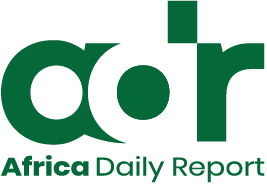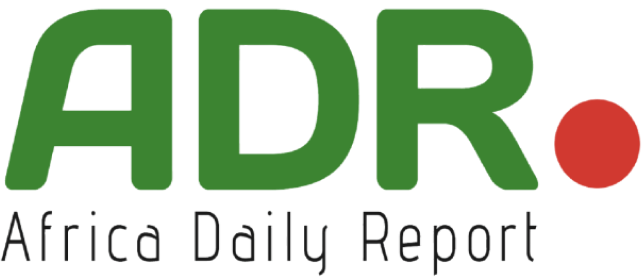Can justice in the Democratic Republic of Congo (DRC) regain its credibility? Corruption, politicization, chronic overcrowding in prisons, and limited access for the underprivileged mark a judicial system facing immense challenges. In a context where President Félix Tshisekedi promises to “restore justice” through ambitious reform, many Congolese are left wondering if this is a sincere commitment or merely a political maneuver. The opening of the États Généraux de la Justice (Justice Forum) in Kinshasa in November 2024 marks a significant turning point, but does it represent a true hope or another fleeting promise?
The Kinshasa Forum: An Alarming Overview of Systemic Failures
During the opening of this forum, Tshisekedi emphasized the severe shortcomings of the Congolese justice system, which he describes as a “betrayal” to the people. “Justice is destroying the nation,” he declared, denouncing an institution deeply marred by corrupt and politicized actors. According to him, Congolese citizens have lost trust in the judicial system, perceiving it more as a repressive tool than an institution of protection. The Minister of Justice, Constant Mutamba, further highlighted crucial issues, including prison overcrowding, arbitrary arrests, and extreme procedural delays.
One example that reflects this crisis is the Makala prison in Kinshasa, where overcrowding has led to hundreds of detainees living in inhumane conditions. In 2024, an Amnesty International report revealed that over a hundred detainees had died due to deplorable detention conditions, including suffocation and lack of medical care. This situation underscores the gravity of the dysfunctions within the justice apparatus.
Underpaid Magistrates and a System Vulnerable to Corruption
One underlying problem of systemic corruption is the economic hardship faced by the magistrates themselves, who are often severely underpaid. According to the Union of Magistrates in Congo, 35% of magistrates have not received their full salaries in the past two years. “Without a decent income, how can we expect to perform our duties with integrity?” says a magistrate based in Bukavu who chose to remain anonymous. This economic precariousness undermines judicial independence, encouraging some to resort to “informal fees” for survival.
Recent investigations revealed that some judges receive unofficial payments of up to 500 dollars to expedite land dispute judgments—a practice that local NGOs like the Observatoire Congolais des Droits Humains (Congolese Human Rights Observatory) describe as “institutionalized corruption.”
Prolonged Pretrial Detention: A Vicious Cycle of Injustice
The DRC is also known for its abuse of prolonged pretrial detention. In some prisons, such as the one in Goma, most detainees have awaited trial for several years. In 2023, the UN’s MONUSCO reported that 75% of Congolese prisoners were awaiting judgment. Among them are numerous minors and individuals accused of minor offenses who, in the absence of a trial, effectively endure de facto sentences. “Congolese prisons have become lawless zones where most detainees have never been tried,” says Koffi Mboko, a human rights lawyer. This prolonged detention, sometimes extending for years without a trial, constitutes a grave human rights violation and reinforces the notion that the Congolese justice system punishes the weak rather than powerful criminals.
Military Justice: A Parallel and Controversial Jurisdiction
Military justice in the DRC frequently operates alongside the civilian justice system, extending its authority over cases involving civilians, particularly for offenses concerning “national security.” In 2022, several civilians were tried in a military tribunal for an alleged “state sabotage,” which sparked protests from human rights organizations. The frequent recourse to military courts raises questions of fairness and transparency, as military procedures are often opaque and deny defendants fundamental rights.
Inaccessible Justice for Rural and Disadvantaged Populations
The Congolese judicial system primarily operates in French, creating a barrier for many Congolese, especially in rural areas where local languages are predominant. Adding to this is the geographical distance of many courts: in some provinces, citizens must travel hundreds of kilometers to reach a tribunal. “Justice is too far from the people,” says Jean Bisimwa, an activist in Bunia. “For Congolese living in rural areas, justice is inaccessible both linguistically and geographically.” The lack of interpreters and geographic inaccessibility only strengthen the perception that justice is neither fair nor accessible to all.
The Devastating Impact of Armed Conflicts on Justice
In conflict zones, particularly in eastern DRC, judicial institutions are often absent or extremely weak. Armed groups impose their own rules and procedures, creating a parallel “justice” system. In 2023, in the Masisi territory, the Maï-Maï armed group established an informal court to settle land disputes, depriving citizens of their constitutional rights and instilling a climate of fear. “People live under the law of armed groups, with no protection from the State,” says Alice Mukendi, a resident of Masisi. With no effective state control in these areas, populations live under the justice of armed groups who impose their “laws” as they see fit.
Judicial Delays and Political Influence: A Manipulated Justice System
Delays in processing cases are exacerbated by frequent political interventions in judicial proceedings. Cases involving corruption and the misappropriation of property by influential figures are regularly stifled or delayed. In 2022, a high-profile case involving a senior official accused of embezzling 10 million dollars was indefinitely suspended due to political pressure, highlighting a tendency towards “selective justice.” “Justice is a tool of power in this country, not a public service,” claims an insider at the Ministry of Justice.
Insufficient Judicial Infrastructure: A Barrier to Modernization
The poor state of judicial infrastructure in rural areas further complicates the handling of cases. Courts often lack permanent buildings, administrative supplies, and modern technologies for record-keeping, which impedes procedural progress. In the Equateur Province, for instance, the Mbandaka court operates in dilapidated buildings without digital archiving, significantly slowing down procedures and risking case file loss.
The Constitutional Reform Debate and Judicial Independence
Although the 2006 Constitution guarantees judicial independence, the reality in the DRC is marked by a strong influence of the executive branch. The appointment of judges to the Constitutional Court and other high courts is often influenced by political interests, compromising their impartiality. “How can we speak of justice if judges are chosen based on political loyalty?” questions Faustin Mulumba, a constitutional lawyer.
Weak Protection of Human Rights
The DRC has long been criticized for its inability to protect citizens’ fundamental rights. In 2024, Human Rights Watch published a damning report on police abuses and arbitrary detentions of human rights activists, with no judicial recourse. The Congolese government struggles to prosecute security force members responsible for violence and has yet to implement effective protection measures for victims of serious crimes. The recent reinstatement of the death penalty has sparked intense controversy, adding to concerns over human rights in the DRC.
Concrete Actions Needed for a Fair Justice System
For this reform to have a real impact, the government must go beyond rhetoric and implement concrete measures. Continuous training for magistrates, the establishment of independent oversight committees, and the creation of specialized anti-corruption courts are possible solutions. Additionally, partnerships with international justice organizations, such as the UN, could enhance transparency and integrity within the justice system. Introducing judicial translation services in local languages and improving court access in remote regions will also be essential to restoring public confidence.
Conclusion: Promised Reforms, Limited Hopes
Is the États Généraux de la Justice the beginning of a real transformation for the DRC, or merely an exercise in communication? While Tshisekedi appears to want change, structural and political obstacles remain vast. Congolese citizens hope for a justice system that protects all citizens and ensures equality before the law, but past broken promises remain fresh in their minds.
With this reform, Tshisekedi is gambling on his national and international credibility. “This isn’t just about justice,” says legal expert Léon Mbuyu. “The country’s future is at stake.” For now, the citizens remain skeptical yet vigilant, hoping that a true reform will bring about a fair, accessible, and equitable justice system genuinely at the service of the people.
© O Bulamba / ADR




